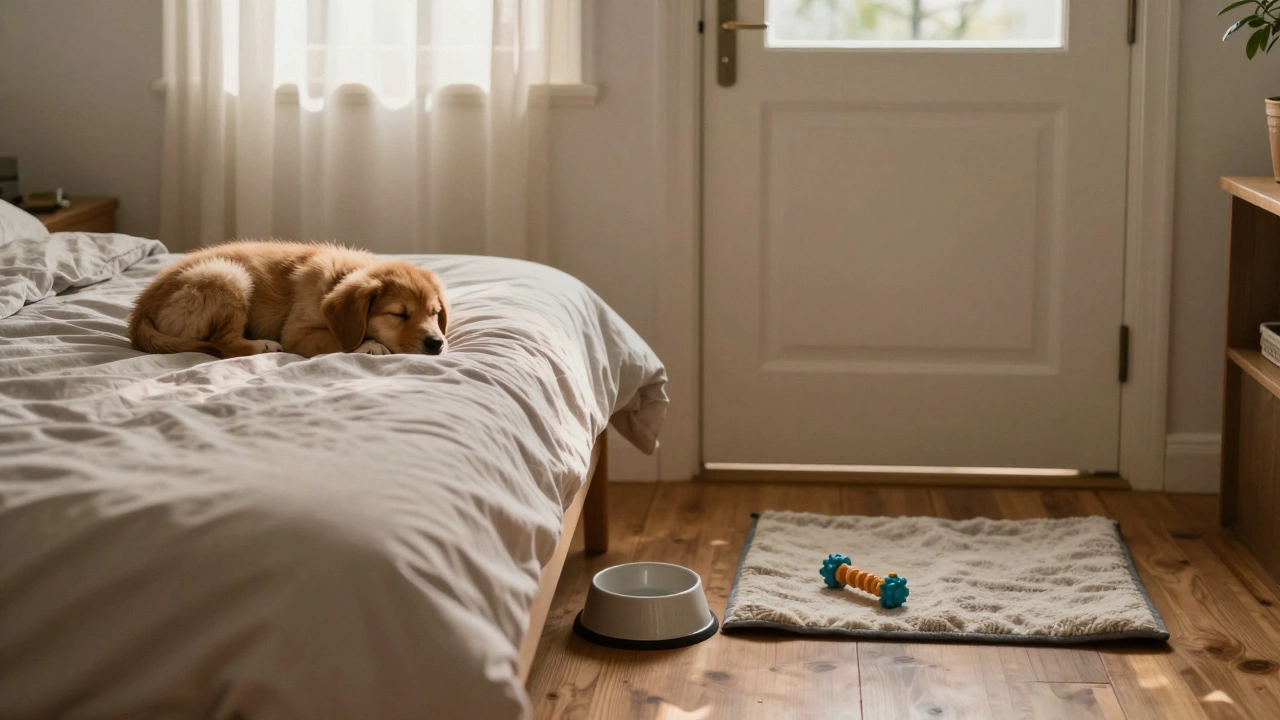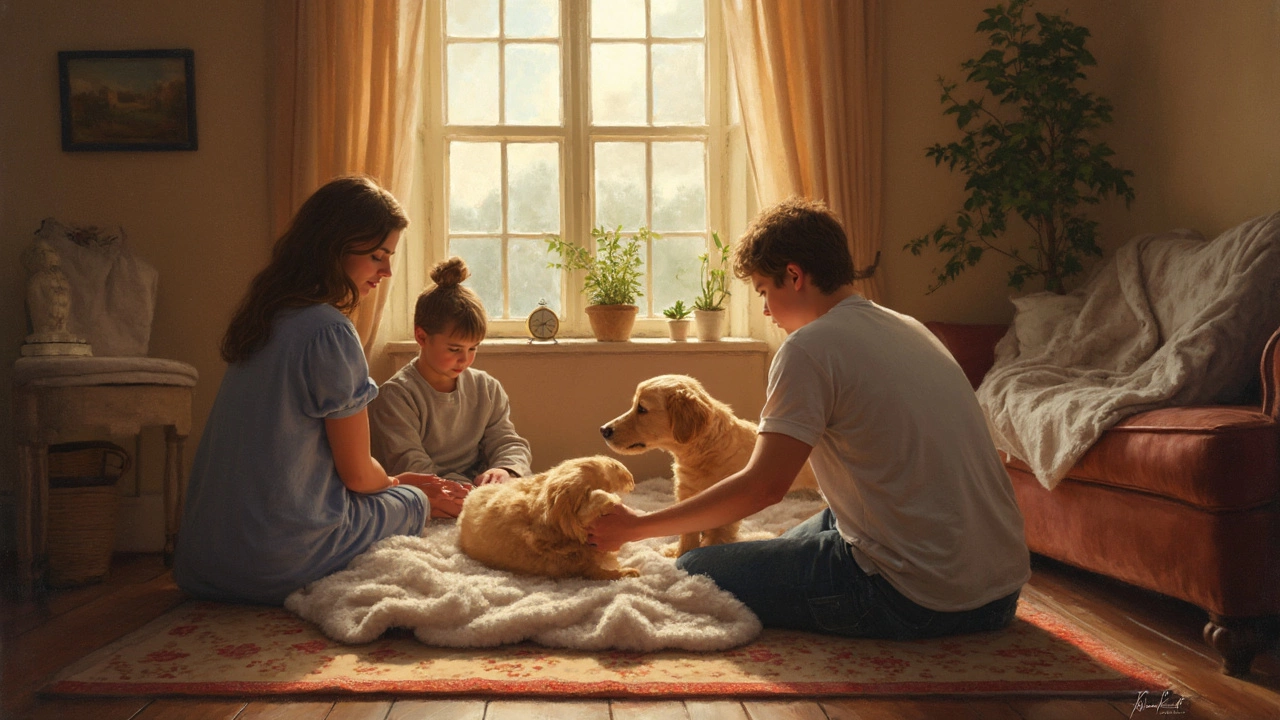Puppy Care Tips: Simple Advice for Happy, Healthy Puppies
Got a new pup and feeling a bit overwhelmed? You’re not alone. Below are the most useful tips that will keep your puppy safe, comfortable, and learning fast.
Feeding, Chewing & Comfort
First thing is food. Stick to a high‑quality puppy kibble and follow the feeding guide on the bag. Split the daily amount into three to four meals so their tiny stomach isn’t overloaded. Fresh water should always be within reach.
Chewing is natural for pups, especially when they’re teething. Choose toys that are soft enough not to hurt their gums but sturdy enough not to break apart. Vet‑approved chew toys, like the ones in our “Best Chew Toys for Puppies” guide, are a safe bet. Rotate toys every few days to keep interest high and prevent boredom.
A cuddle toy can be a lifesaver. A soft plush that’s easy to wash gives a new puppy something to snuggle with when they’re scared or lonely. It also helps them settle into a new home faster, as outlined in “Do Puppies Need Cuddle Toys?”. Look for toys without small parts that could swallow.
Training Basics
Teaching your puppy its name is easier than you think. Say the name in a happy tone, then give a treat the instant they look at you. Repeat a few times a day and the connection forms quickly. Our “How to Teach Your Puppy Its Name” article walks you through each step.
Stop pulling on the leash before it becomes a habit. Keep the leash short, stop walking the moment they pull, and wait for slack before moving again. Consistency speeds up loose‑leash training – see “Stop Your Dog Pulling on Leash” for the full method.
House‑breaking needs patience. If you catch a puppy mid‑pee indoors, gently interrupt with a “no” and guide them outside. Avoid scolding; it only confuses them. Clean accidents with an enzyme cleaner so the scent doesn’t lure them back. The “Should You Interrupt a Puppy Peeing Inside?” post explains why timing matters.
Socialisation is another must‑do. Introduce your puppy to different sounds, surfaces, and friendly dogs during the first few weeks. Short, positive experiences build confidence and reduce fear later on.
Lastly, keep an eye on health. A regular vet check‑up will catch issues early. Ask about core vaccines, deworming, and the most important vitamin for dogs – vitamin D – as highlighted in our “What is the Most Important Vitamin for a Dog?” guide.
Grooming may seem like a chore, but a quick brush once a day keeps fur tidy and checks for bumps or ticks. Start with a soft brush and let your puppy get used to the feel. A short bath every few weeks with a puppy‑safe shampoo keeps skin healthy.
Putting these tips into daily routine will make your puppy grow into a well‑behaved, happy adult dog. Remember, consistency and love are the real keys. With these simple steps you’ll enjoy every moment of puppyhood without the stress.


